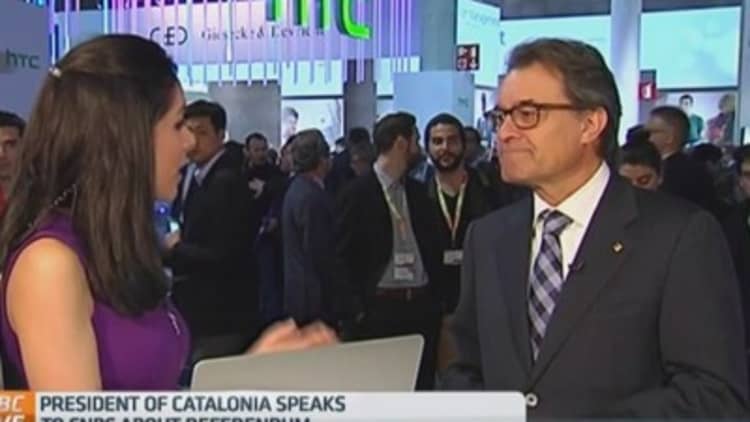The Anglo-Saxon "9 to 5" working pattern is the norm for most of Europe, but Mediterranean countries have remained attached to their traditional lengthy lunch breaks and late dinners.
However, one Spanish region may call time on the country's famous siesta and switch to a more condensed Northern European/American-style work schedule.
Catalonia in the north east of Spain could become is the first region to call time on the culture of two-hour-long lunch breaks and working late into the night, due to the efforts of a campaigning group called "Reforma Horaria" (Reform Time).
Reforma Horaria aims to transform Catalans' typical working schedules, with one hour lunch breaks between 1 p.m. and 2 p.m. replace lunches of two hours or longer, and the working day finishing by 6 p.m., rather than 7 p.m. or 8 p.m.
The group submitted its proposal to the Catalan parliament on Thursday and it is currently under consideration.
"The current timetable affects the competitiveness and productivity of the economy," Reforma Horaria said in its proposal.
Read MoreWould you cut your salary by 20%?
Sleepy heads?
In theory, siestas sound idyllic; however, in practice the daily break can have a detrimental effect on both social and economic aspects of people's lives. The long hours at work mean families spend less quality time together and can be eating dinner and staying up to extremely late hours of the night.
Typically, small shops and family run businesses close for an hour during the daytime, with larger shops staying open to as late as 11 p.m. at night.
Elena Gonzalez Castillo, a Spanish journalist, was uncertain whether attempting to change working practices was a good idea.
"If it means increased productivity and more free time, then it is. Nevertheless, it may also lead to more stress, labour dissatisfaction and so on," she told CNBC on Friday.




Independent Catalonia?
Interestingly, the Reforma Horaria initiative coincides with the Spanish municipal elections in May, at which pro-independence parties are seen scoring highly in Catalonia.
The region is one of the wealthiest in Spain and considers itself culturally distinct, with inhabitant speaking Catalan as well as Spanish. It is currently designated a "autonomous community" in Spain, granting it a degree of autonomy from the federal Spanish government.
Catalonia's call for independence from the rest of Spain have gained traction recently. The region's separatist president, Artus Mas, held a referendum on the issue last year, in which the majority of Catalans voted for independence; however the vote was judged unconstitutional by the Spanish government.
He now plans to hold a snap election on the issue in September 2015.
Last month, Mas told CNBC at the Mobile World Congress in Barcelona that an independent Catalonia would probably be economically comparable to Austria or to Denmark; both of whose economies he termed "outstanding."
Read MoreIndependent Catalonia would be richer: President
Mas added that if Catalonia were to be independent, "We would have more money and more legal capacity to take decisions and this is what you can do for your economic structure in your country and to help private companies to do better."
Castillo told CNBC that full-blown siestas were actually very rare in Spain, so the Reforma Horaria initiative could be part of the bid for Catalonia's independence.
"I don't know any place in Spain where working timetables include siesta, neither in Catalonia nor in any other region, so this sounds to me more like a political announcement made to reinforce the idea of difference from the rest of Spain, and to boost its image internationally -- which, eventually, will lead to a supporting attitude towards its independence," she said.
Castillo added that siestas were "more a myth that people from other countries have about Spain" and that they were "definitely not common at all in the cities."
Read MoreSpain to split? Snap vote on Catalan independence
Follow us on Twitter: @CNBCWorld





